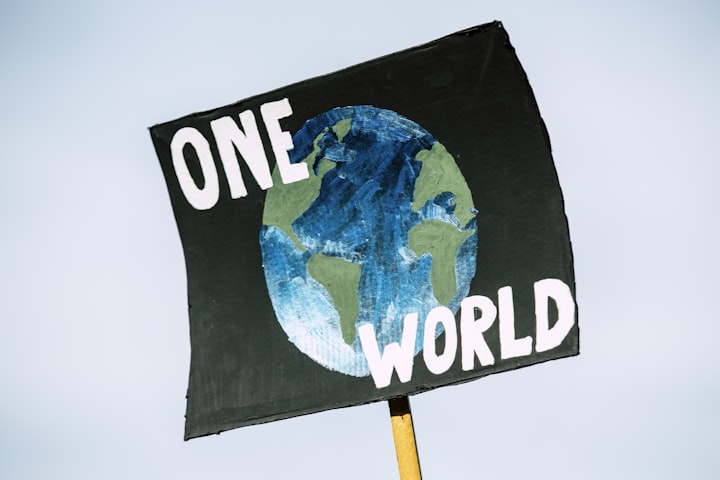Emotional Election Stories
Election Stories

Community Unity: Explore the story of a small town where the local elections become a catalyst for healing deep divisions within the community. Highlight how individuals from different backgrounds and political affiliations come together to find common ground and work towards a shared vision for the future.
Youth Empowerment: Tell the story of a young candidate who enters the local elections with a passionate drive to make a difference. Explore the challenges they face as they navigate a system dominated by older, more established politicians. Shed light on the transformative power of youth engagement in politics and the impact they can have on their community.
Personal Sacrifice: Follow the journey of a candidate who, against all odds, decides to run for a local office despite personal hardships. Highlight the sacrifices they make, such as putting their career on hold or overcoming financial struggles, to serve their community. Explore their motivations and the emotional toll that campaigning takes on their personal life.
Rebuilding Trust: Focus on a town that has been plagued by corruption or scandal in the past. Tell the story of a group of candidates who strive to restore trust and integrity in the local government. Highlight the emotional journey of these candidates as they face skepticism, opposition, and the challenges of convincing the community that positive change is possible.
Legacy and Tradition: Explore the emotional story of a long-standing political family that has dominated local elections for generations. Dig into the complexities of familial expectations, personal aspirations, and the weight of upholding a family legacy. Highlight the emotional conflicts that arise when a new, unexpected candidate challenges the status quo and tests the family's loyalty and unity.
Empathy and Social Justice: Focus on a candidate whose platform is centered around social justice issues and fostering empathy within the community. Explore how their campaign evokes emotions and mobilizes individuals who have been marginalized or ignored in the past. Highlight the personal stories of those impacted by the candidate's proposed policies and the emotional journey of creating a more inclusive society.
Environmental Stewardship: Tell the story of a candidate who champions environmental causes and sustainability in local elections. Highlight the emotional connection they have with the natural beauty of their community and the passion they inspire in others to protect and preserve it. Explore the personal sacrifices and emotional challenges the candidate faces as they fight against powerful interests to promote environmental stewardship.
Overcoming Prejudice: Follow the story of a candidate who faces prejudice and discrimination based on their race, gender, or other factors. Highlight the emotional journey of resilience, determination, and self-discovery as they challenge societal biases and fight for equal representation and opportunity in local politics.
Healing Post-Election Divisions: Set the story in a community that has experienced deep divisions as a result of a contentious local election. Explore the emotional aftermath, including strained relationships and fractured communities. Follow the journey of individuals who work tirelessly to bridge the divide, promote understanding, and foster healing and unity.
The Power of One Vote: Focus on the emotional impact of an election where the outcome is determined by a single vote. Highlight the stories of individuals who, against all odds, exercise their right to vote and the personal significance they attach to their decision. Explore the ripple effects of that one vote and how it can shape the destiny of a community.
Individual and government responsibility regarding election stories is a critical aspect of maintaining a healthy democratic process. Elections play a fundamental role in shaping the future of a nation, and the stories surrounding them can have a significant impact on public opinion, political discourse, and the overall integrity of the electoral process.
On an individual level, citizens have a responsibility to critically evaluate and verify election stories before accepting them as truth. In today's digital age, misinformation and fake news can spread rapidly, influencing public perception and undermining the electoral process. It is essential for individuals to exercise media literacy skills, fact-check information, and seek reliable sources before forming opinions or sharing election-related stories.
Individuals should also engage in civil and constructive discussions about election stories. Respectful dialogue allows for the exchange of ideas, diverse perspectives, and the identification of potential biases or inaccuracies. By promoting a culture of informed and responsible discourse, individuals can contribute to a more robust democratic system.
On the other hand, governments also bear a significant responsibility in ensuring the accuracy, transparency, and fairness of election stories. Governments must create and enforce regulations to curb the spread of misinformation during election campaigns. This may include measures to address social media manipulation, false propaganda, and deceptive advertising.
Furthermore, governments should promote an environment that encourages investigative journalism and supports independent media outlets. Journalists play a crucial role in uncovering and reporting the truth behind election stories. Governments must protect freedom of the press, provide access to information, and safeguard journalists from undue influence or intimidation.
Government authorities should also invest in public awareness campaigns to educate citizens about the importance of verifying information and being critical consumers of news. By promoting media literacy, governments can empower individuals to navigate the complex landscape of election stories and make informed decisions.
Additionally, governments should establish transparent electoral processes that inspire public trust. This involves ensuring the accuracy of voter registration, providing secure and accessible voting methods, and impartially administering elections. By demonstrating commitment to fair and credible elections, governments can mitigate skepticism and create an atmosphere conducive to accepting legitimate election stories.
In conclusion, both individuals and governments bear responsibility in dealing with election stories. Individuals must exercise critical thinking, media literacy, and engage in constructive discussions to promote a healthy democratic process. Governments, on the other hand, should implement regulations, protect freedom of the press, and foster transparent and trustworthy electoral systems. By working together, individuals and governments can uphold the integrity of elections and ensure that election stories accurately reflect the will of the people.





Comments (1)
Nice story